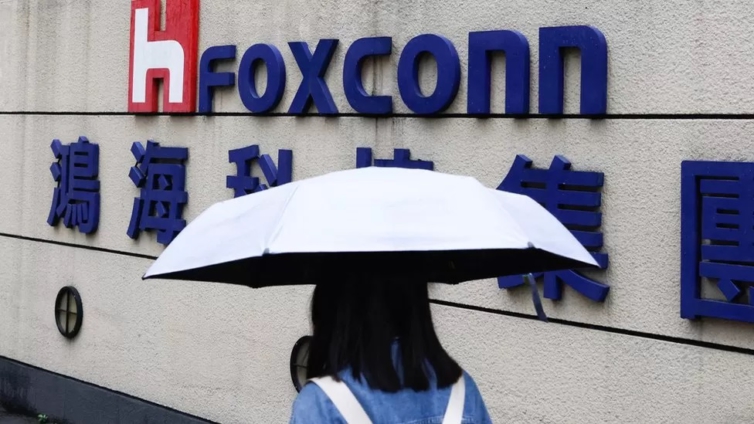Apple supplier Foxconn has pulled out of a $19.5bn (£15.2bn) deal with Indian mining giant Vedanta to build a chip-making plant in the country.
The move comes less than a year after the companies announced plans to set up the facility in Prime Minister Narendra Modi's home state of Gujarat.
Some analysts say it marks a setback to the nation's technology industry goals.
However, a government minister says it will have no impact on the country's chip-making ambitions.
"There was recognition from both sides that the project was not moving fast enough," Taiwan-headquartered Foxconn said in a statement.
"There were challenging gaps we were not able to smoothly overcome, as well as external issues unrelated to the project," the firm added.
Earlier on Tuesday, Foxconn told the BBC that the decision was made in "mutual agreement" with Vedanta, which has assumed full ownership of the venture.
It added that it would "continue to strongly support the government's 'Make in India' ambitions".
New Delhi-based Vedanta said it had "lined up other partners to set up India's first [chip] foundry".
"The surprise pull-out of Foxconn is a considerable blow to India's semiconductor ambitions," Paul Triolo from global advisory firm Albright Stonebridge Group told the BBC.
"The apparent cause of the pull-out is the lack of a clear technology partner and path for the joint venture," he added. "Neither party had significant experience with developing and managing a large-scale semiconductor manufacturing operation."
However, Rajeev Chandrasekhar, India's Minister of State for Electronics and Information Technology, said on Twitter that Foxconn's decision had "no impact on India's semiconductor fab[rication] goals. None."
Mr Chandrasekhar added that Foxconn and Vedanta were "valued investors" in the country and "will now pursue their strategies in India independently".
The Indian government has been working on strategies to support the chipmaking industry.
Last year, it created a $10bn fund to attract more investors to the sector, in a bid to become less reliant on foreign chipmakers.
Prime Minister Modi's flagship 'Make in India' scheme, which launched in 2014, is aimed at transforming the country into a global manufacturing hub to rival China.
In recent years, several other firms have announced plans to build semiconductor factories in India.
Last month, US memory chip giant Micron said it would invest up to $825m to build a semiconductor assembly and test facility in India.
Micron said that the construction of the new facility in Gujarat will begin this year. The project is expected to directly create up to 5,000 roles, and another 15,000 jobs in the area.
Latest Stories
-
Bawumia joins thousands in Kumasi for burial prayers for Ashanti Regional Imam
2 hours -
Blue Gold Bogoso Prestea Limited challenges government actions in court
3 hours -
Syria not a threat to world, rebel leader Ahmed al-Sharaa tells BBC
3 hours -
Patrick Atangana Fouda: ‘A hero of the fight against HIV leaves us’
3 hours -
Trinity Oil MD Gabriel Kumi elected Board Chairman of Chamber of Oil Marketing Companies
4 hours -
ORAL campaign key to NDC’s election victory – North America Dema Naa
4 hours -
US Supreme Court to hear TikTok challenge to potential ban
4 hours -
Amazon faces US strike threat ahead of Christmas
5 hours -
Jaguar Land Rover electric car whistleblower sacked
5 hours -
US makes third interest rate cut despite inflation risk
5 hours -
Fish processors call for intervention against illegal trawling activities
5 hours -
Ghana will take time to recover – Akorfa Edjeani
6 hours -
Boakye Agyarko urges reforms to revitalise NPP after election defeat
6 hours -
Finance Minister skips mini-budget presentation for third time
6 hours -
‘ORAL’ team to work gratis – Ablakwa
6 hours

